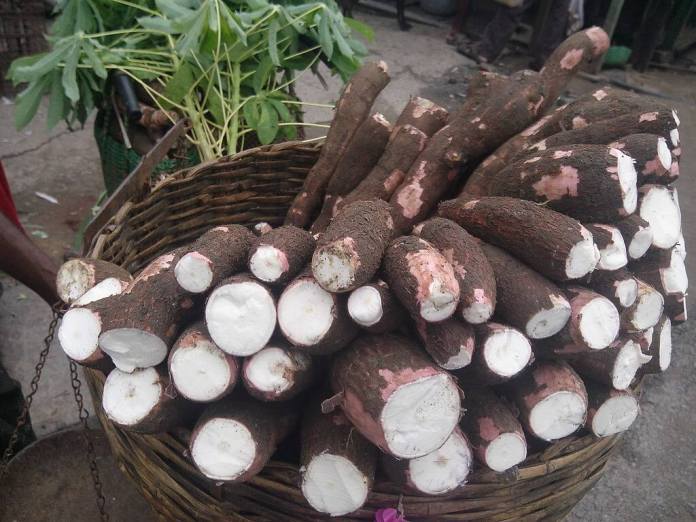 The US$50M annual importation bill for wheaten flour locally is expected to reduce by US$10M with the presence of cassava flour on the local market. This significant achievement will be made possible via the setting up of a cassava processing mill at Parika, East Bank Essequibo.
The US$50M annual importation bill for wheaten flour locally is expected to reduce by US$10M with the presence of cassava flour on the local market. This significant achievement will be made possible via the setting up of a cassava processing mill at Parika, East Bank Essequibo.
This announcement was made Thursday by Dr Oudho Homenauth, Chief Executive Officer (CEO) of the National Agricultural Research and Extension Institute (NAREI) at the opening session of a two-day workshop focused on cassava development. The workshop is being held at the Institute’s boardroom, Mon Repos, East Coast Demerara.
In attendance were George Jervis, Permanent Secretary (PS) of the Ministry of Agriculture; Dr Bernardo Ospina, CEO of Clayuca Corporation; representatives of the private sector; farmers, and staff of the Ministry of Agriculture.
Cassava development in the Caribbean Community (CARICOM) has been given a big boost with funding by the European Union. The Columbian Government is facilitating the implementation in Guyana, Suriname, Grenada, Barbados and Jamaica. Clayuca is the implementing agency on behalf of the Columbian Government.
According to Dr Homenauth, the programme duration is 42 months, a period that would allow the transfer of technology, introduction of new varieties, capacity building and most importantly the setting up of the cassava flour mill. The mill costs US$100,000 and has the capacity to process 10,000 pounds of cassava per day.
Earlier this year, NAREI said that it conducted an exercise to determine whether cassava flour would be an effective ingredient in the bread baking process. The outcome, NAREI outlined, has local bakeries interested in using cassava flour as part of their operations. A study conducted revealed that 20 per cent of cassava flour could be added to the flour mix for bread baking.
NAREI’s CEO was clear that neither the agency nor the Ministry is imposing the use of cassava flour but is promoting it as an economical alternative. He emphasized that the US$10M saved from the importation bill would go to local cassava farmers.
Meanwhile, PS Jervis whilst expressing thanks to the European Union for funding the initiative, pledged the Ministry’s support for this venture, while noting that cassava is an important component of the Ministry’s long term plan.


























Cassava is indeed a viable economic venture. Apart from expanding the agriculture, the cassava factory would encourage secondary industries such as liquid starch and grated cassava used in the making of pastries. Cassava flower is very important in the making of biscuits and triscits.